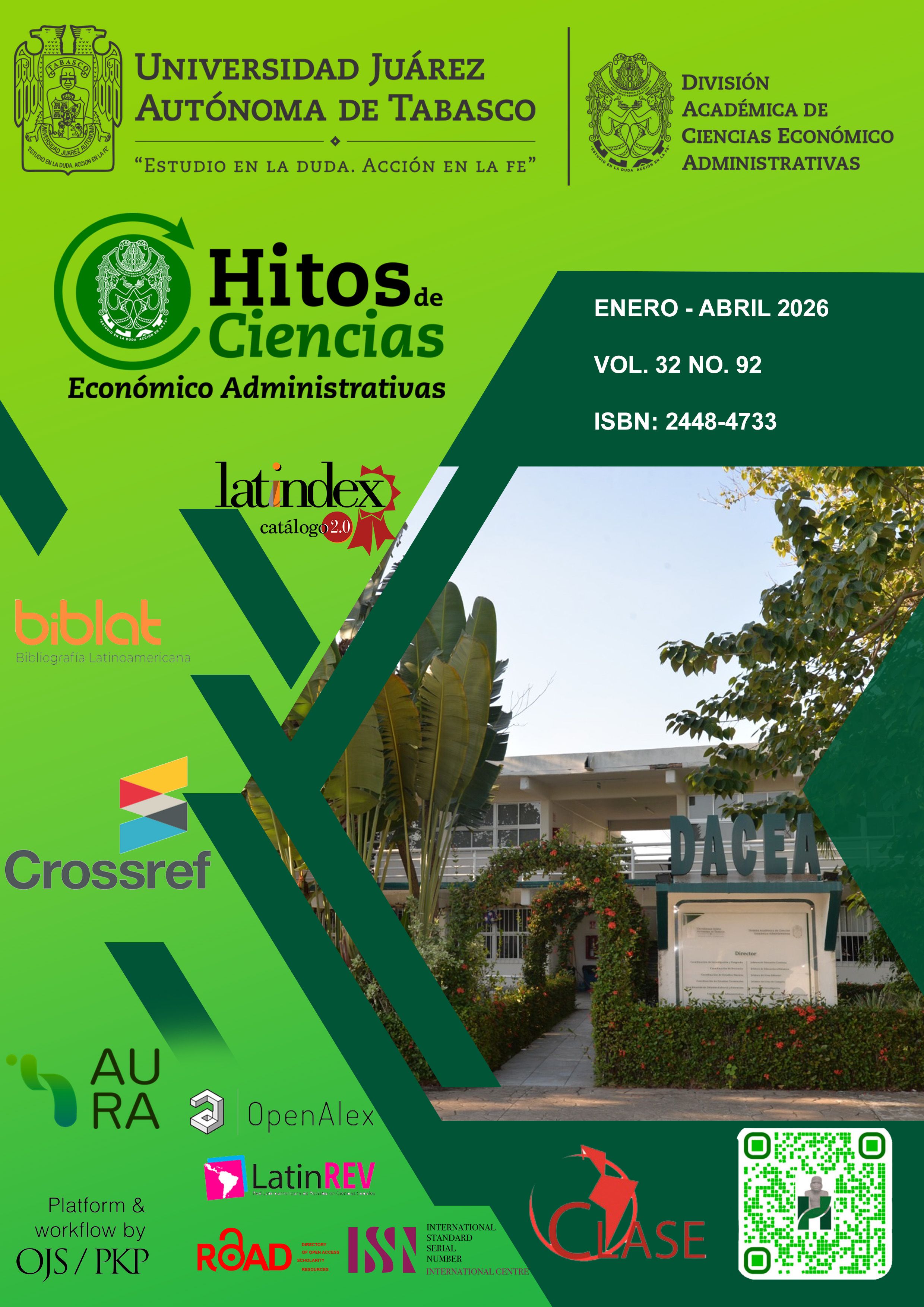About the Journal
Hitos de Ciencias Económico Administrativas es una revista de contenido económico administrativo, en forma de artículos originales y ensayos, con publicación continua, editada desde 1994 por la Universidad Juárez Autónoma de Tabasco, a través de la División Académica de Ciencias Económico Administrativas. Es de circulación nacional e internacional con arbitraje.
Informes: hitos@ujat.mx, hitos.ujat@gmail.com
Hitos de Ciencias Económico Administrativas se encuentra indexada en Latindex Catálogo v2.0, CLASE, Biblat, Google Scholar, MIAR, LatinREV y REDIB.
Current Issue

Hitos de Ciencias Económico Administrativas Vol. 32 No. 92
